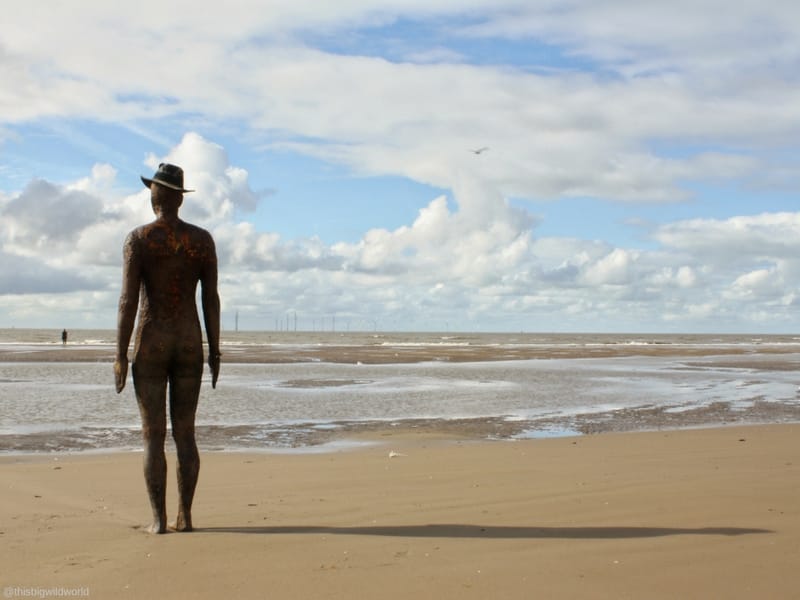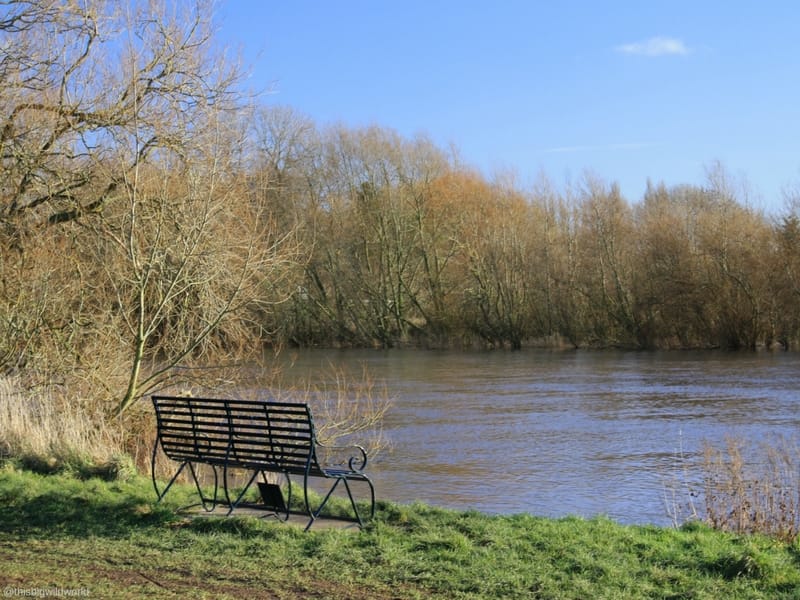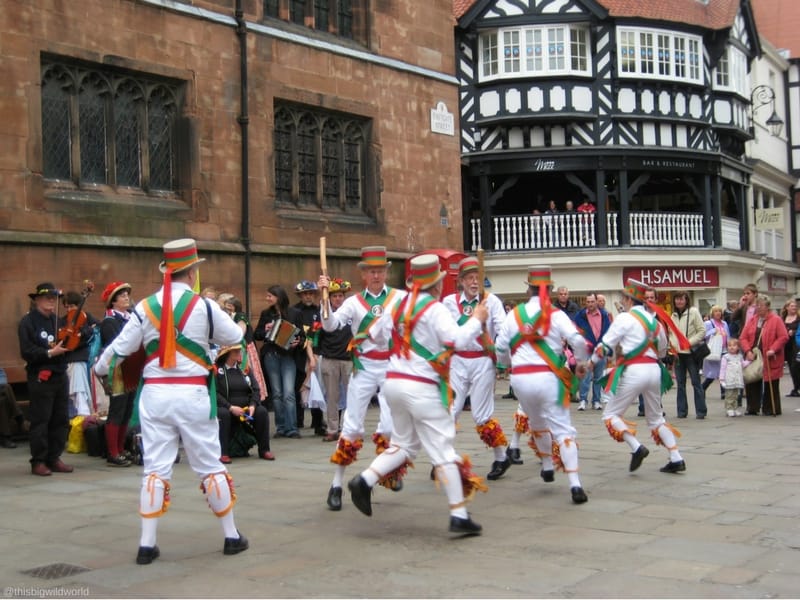Living Abroad, from a Psychologist’s Perspective
What is wrong with me? Why am I sitting here watching “The OC” instead of exploring this new country I’m living in? Wasn’t this my dream come true?
These were my thoughts six months into my expatriate assignment in England. The honeymoon was over and the reality of my situation had hit me. Living abroad seemed all sexy and exciting, but there was a dark side as well. One that I wish I had known more about before accepting my three year assignment.
Don’t get me wrong, I would do it again if given the chance. But, I would walk into the experience with a greater understanding for what I was about to endure. These are my lessons learned while living abroad.

Disclosure: This post contains affiliate links. That means that if you purchase through a link, I may receive a small commission at no extra cost to you. For more info, visit this page.
The Expatriate Debate
There are many viewpoints on what it means to be an expatriate. For this post I am using the term to refer to a company-sponsored move abroad with the intention and agreement to return to my home country after a specific period of time. Repatriation is the process of returning to your home country after an international assignment. These same lessons would apply to anyone living in another country for an extended period of time.
After the honeymoon period, there are dark times ahead.

There is a mountain of psychology research on the topics of expatriation and repatriation. A person’s energy level and emotional state can be charted from the time they accept an offer to move abroad to after they return to their home country. This blog post explains the process well and includes a helpful visual.
The “honeymoon period” starts just before you move and lasts for the first few months that you’re living in your new location. Everything is new, shiny and exciting. A few months in you become a bit angry or frustrated with the differences. Your energy level and emotions plummet, and you may find yourself watching hours of “The OC” like I did.
This is normal and, unfortunately, is followed by some dark times as the initial culture shock and feelings of homesickness set in. The reality of your new living situation hits you and you begin to miss family and friends.
I consider myself a strong and independent person. There aren’t many things that rattle me. Even I could not resist this initial culture shock. There were days where I contemplated leaving all of my belongings behind and flying back to the US with my dog. I thought I was weak or something was wrong with me. Well, I’m not and there wasn’t. I just wish I had known that then!
Brace yourself and know that there are brighter days ahead.

RELATED: Why I Travel, An Early Mid-Life Crisis in Vietnam
Your definition of home needs to shift.
A critical turning point for me, was when I realized that my definition of “home” needed to shift. I was spending my time thinking about what was going on “back home”, instead of seeing this new place as my “home”.
Once I realized that Chester, England was my home, my entire attitude changed. My shoulders lifted and I felt more invested in the life I was building in England. When I traveled to the US, I wasn’t going “home” anymore, I was visiting friends and family.
It’s subtle, but important.

Embrace the differences, but allow for familiar comforts.
Once you’ve accepted this new place as your “home”, something special happens. Suddenly the differences become uniquely wonderful or at the very least tolerable.

Did it drive me crazy that restaurants didn’t offer takeaway? Yes, but I learned to enjoy a meal by myself or challenged myself to learn to cook more. Did I hate that shops closed early on Sundays? Absolutely, but I used those days to go hiking with my dog or talk with friends and family on the phone.
While embracing these differences allowed me to enjoy my experience, I also treated myself to some familiar comforts. I paid a little extra for Sky TV so I could watch familiar TV shows (streaming was not yet available). I, also, had my family mail some of my favorite foods and spices so that I could feel their closeness by cooking my comfort foods.
It’s harder to return to your home country than it is to move abroad.
Remember that graph I mentioned earlier? Well this was one of my biggest surprises. The low I felt shortly after returning to my home country was even lower than the one I felt shortly after moving abroad. Apparently, this is also normal. Why didn’t anyone tell me this?!
I have thought and read a lot about why this happens. In my own words, you’re not the same person as you were when you left, but you expect to return to the same relationships. The people you hold near and dear have continued on in their lives without your regular presence. It’s not because they don’t still care about you, but life has to go on. And that means that they have memories, life events and story lines that you weren’t a part of. That stings a bit.
Professionally, it’s important to know that up to 40% of repatriated employees quit their jobs within the first 2 years of returning to their home country. Knowing this helped me normalize how I felt when I returned from living abroad. I had grown so much yet my employer didn’t seem to recognize this. In the end, this feeling was a primary reason why I chose to leave years later.

My one piece of advice.
Put yourself out there to meet new people. When you’re facing that initial culture shock, it can be easy to retreat into yourself. But, making meaningful connections will help you move forward. My rule was to accept any social invitation I received for the first six months. Now, I’m not saying to do anything unsafe, so please use common sense. By doing this, though, I forced myself to get out and meet the friends who ended up being my support system for those three years and beyond.

Should you move abroad?
I think this is a personal question for you to reflect on. It’s not for everyone. But, living abroad for an extended period of time is an enriching and rewarding experience. I recommend walking into it with your eyes wide open for the not-so-sexy parts and brace yourself for some tough times. If you can ride through those tough times, you won’t regret it.
Love this post? Pin it!




I love learning about different cultures too! And what better way to do that than to live abroad. Where did you live abroad? Thanks for reaching out 😉
Beautiful place! Living abroad is amazing. I love learning about different cultures.
Thanks so much for sharing your experience! I can completely relate. Some countries create less of a shock for sure. There’s some science to the “relativity” or cultures, meaning that those more similar to your own create less of a shock though different people experience that in different ways. I’m glad that you’ve found travel forums to connect with others who can relate. It’s so helpful to have like minded people to lean on, especially when you’re moving or returning from living abroad! Happy travels 🙂
Good post. Yep, culture shock and reverse culture shock, it’s real!
It didn’t affect me as a student when I spent 5 months in France and then 5 months in the UK. I guess I was stuck in the honeymoon phase, I was still very flexible, and I didn’t have strong attachments back home. Looking back, my friendships weren’t really as deep at the time, and my family is not very ‘warm’ either, though not cold either.
And I guess what also helped was that both countries were quite familiar to me, being from the Netherlands and having done multiple holidays in France before.
But when I went traveling for a year and it was my first time outside of Europe (1997), and traveling on only US$10 per day including accommodation… that is when culture shock really hit me hard in Indonesia after a few weeks. With that little money you can’t enjoy much luxury and comfort and you’re much closer to the locals all the time. Locals who behave very differently…
It’s true, if you don’t know this can happen, that is an extra big shock and you start questioning yourself and everything around you. I felt angry a lot of the time in Indonesia… quite ironic since I had gone there to find part of my roots, my dad having been borne on Java and raised there until he was 8. I wish I had known about culture shock.
It got better during the 1 year trip in various continents. And then I came back home. And still didn’t know about culture shock or reverse culture shock. And was hit hard again. Why did everyone in the Netherlands complain so much over nothing? And it was also a bit of a shock to find out that people were willing to listen to travel stories for one afternoon, but after that you ‘had to’ stop talking about other countries or their eyes would glaze over. Things that had impacted me so much as a person, I was not ‘allowed’ to talk about to my own friends back home. This is when I started frequenting travel forums. 🙂